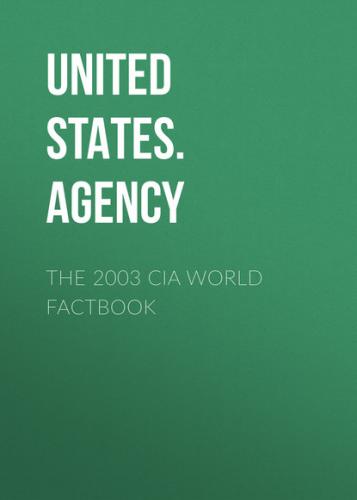2003)
cabinet: Council of Ministers appointed by the president and
confirmed by the National Assembly
elections: president elected by popular vote to a five-year term;
election last held 15 October 2003 (next to be held NA October
2008); prime minister and first deputy prime ministers appointed by
the president and confirmed by the National Assembly
election results: Ilham ALIYEV elected president; percent of vote -
Ilham ALIYEV 76.8%, Isa GAMBAROV 14%
Legislative branch:
unicameral National Assembly or Milli Mejlis (125 seats; members
elected by popular vote to serve five-year terms)
elections: last held 4 November 2000 (next to be held NA November
2005)
election results: percent of vote by party - NA%; seats by party -
NAP and allies 108, APF "Reform" 6, CSP 3, PNIA 2, Musavat Party 2,
CPA 2, APF "Classic" 1, Compatriot Party 1
note: PNIA, Musavat, and APF "Classic" parties refused to take their
seats
note: 100 members of the current parliament were elected on the
basis of single mandate constituencies, while 25 were elected based
on proportional balloting; as a result of a 24 August 2002 national
referendum on changes to the constitution, all 125 members of the
next parliament will be elected from single mandate constituencies
Judicial branch:
Supreme Court
Political parties and leaders:
Azerbaijan Popular Front or APF [Ali KARIMLI, leader of "Reform"
faction; Mirmahmud MIRALI-OGLU, leader of "Classic" faction]; Civic
Solidarity Party or CSP [Sabir RUSTAMKHANLY]; Civic Union Party
[Ayaz MUTALIBOV]; Communist Party of Azerbaijan or CPA [Ramiz
AHMADOV]; Compatriot Party [Mais SAFARLI]; Democratic Party for
Azerbaijan or DPA [Rasul QULIYEV, chairman]; Justice Party [Ilyas
ISMAILOV]; Liberal Party of Azerbaijan [Lala Shvkat HACIYEVA];
Musavat [Isa GAMBAR, chairman]; New Azerbaijan Party or NAP [Heydar
ALIYEV, chairman]; Party for National Independence of Azerbaijan or
PNIA [Etibar MAMMADLI, chairman]; Social Democratic Party of
Azerbaijan or SDP [Zardust ALIZADE]
note: opposition parties regularly factionalize and form new parties
Political pressure groups and leaders:
Sadval, Lezgin movement; self-proclaimed Armenian Nagorno-Karabakh
Republic; Talysh independence movement; Union of Pro-Azerbaijani
Forces (UPAF)
International organization participation:
AsDB, BSEC, CE, CIS, EAPC, EBRD, ECE, ECO, ESCAP, FAO, GUUAM, IAEA,
IBRD, ICAO, ICFTU, ICRM, IDA, IDB, IFAD, IFC, IFRCS, ILO, IMF, IMO,
Interpol, IOC, IOM, ISO (correspondent), ITU, OAS (observer), OIC,
OPCW, OSCE, PFP, UN, UNCTAD, UNESCO, UNIDO, UPU, WCO, WFTU, WHO,
WIPO, WMO, WToO, WTrO (observer)
Diplomatic representation in the US: chief of mission: Ambassador Hafiz PASHAYEV FAX: [1] (202) 337–5911 telephone: [1] (202) 337–3500 chancery: 2741 34th Street NW, Washington, DC 20008
Diplomatic representation from the US: chief of mission: Ambassador Ross L. WILSON embassy: 83 Azadliq Prospekt, Baku 370007 mailing address: American Embassy Baku, Department of State, 7050 Baku Place, Washington, DC 20521–7050 telephone: [9] (9412) 98–03-35, 36, 37 FAX: [9] (9412) 90–66-71
Flag description:
three equal horizontal bands of blue (top), red, and green; a
crescent and eight-pointed star in white are centered in red band
Economy Azerbaijan
Economy - overview:
Azerbaijan's number one export is oil. Azerbaijan's oil production
declined through 1997 but has registered an increase every year
since. Negotiation of production-sharing arrangements (PSAs) with
foreign firms, which have thus far committed $60 billion to
long-term oilfield development, should generate the funds needed to
spur future industrial development. Oil production under the first
of these PSAs, with the Azerbaijan International Operating Company,
began in November 1997. Azerbaijan shares all the formidable
problems of the former Soviet republics in making the transition
from a command to a market economy, but its considerable energy
resources brighten its long-term prospects. Baku has only recently
begun making progress on economic reform, and old economic ties and
structures are slowly being replaced. One obstacle to economic
progress is the need for stepped up foreign investment in the
non-energy sector. A second obstacle is the continuing conflict with
Armenia over the Nagorno-Karabakh region. Trade with Russia and the
other former Soviet republics is declining in importance while trade
is building with Turkey and the nations of Europe. Long-term
prospects will depend on world oil prices, the location of new
pipelines in the region, and Azerbaijan's ability to manage its oil
wealth.
GDP:
purchasing power parity - $28.61 billion (2002 est.)
GDP - real growth rate:
10.6% (2002 est.)
GDP - per capita:
purchasing power parity - $3,700 (2002 est.)
GDP - composition by sector: agriculture: 20% industry: 33% services: 47% (2001 est.)
Population below poverty line: 49% (2002 est.)
Household income or consumption by percentage share: lowest 10%: 2.8% highest 10%: 27.8% (1995)
Distribution of family income - Gini index:
36 (1995)
Inflation rate (consumer prices):
2.6% (2002 est.)
Labor force:
3.7 million (2001)
Labor force - by occupation:
agriculture and forestry 41%, industry 7%, services 52% (2001)
Unemployment rate:
16% (official rate is 1.2%) (2003 est.)
Budget:
revenues: $786 million
expenditures: $807 million, including capital expenditures of $NA
(2001 est.)
Industries:
petroleum and natural gas,
